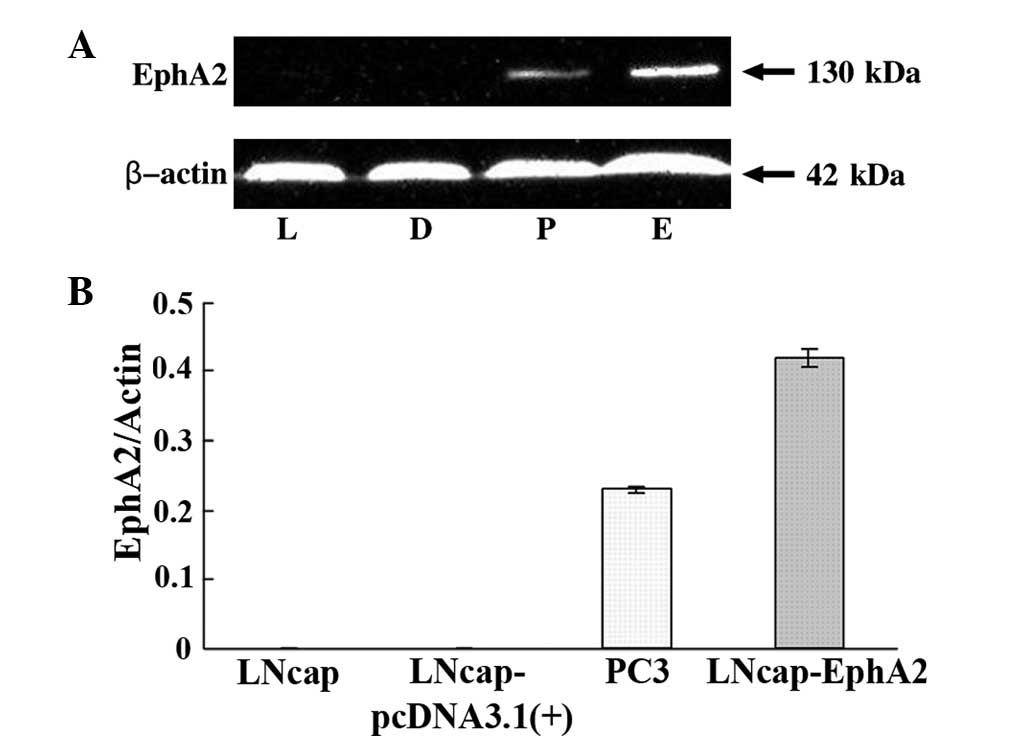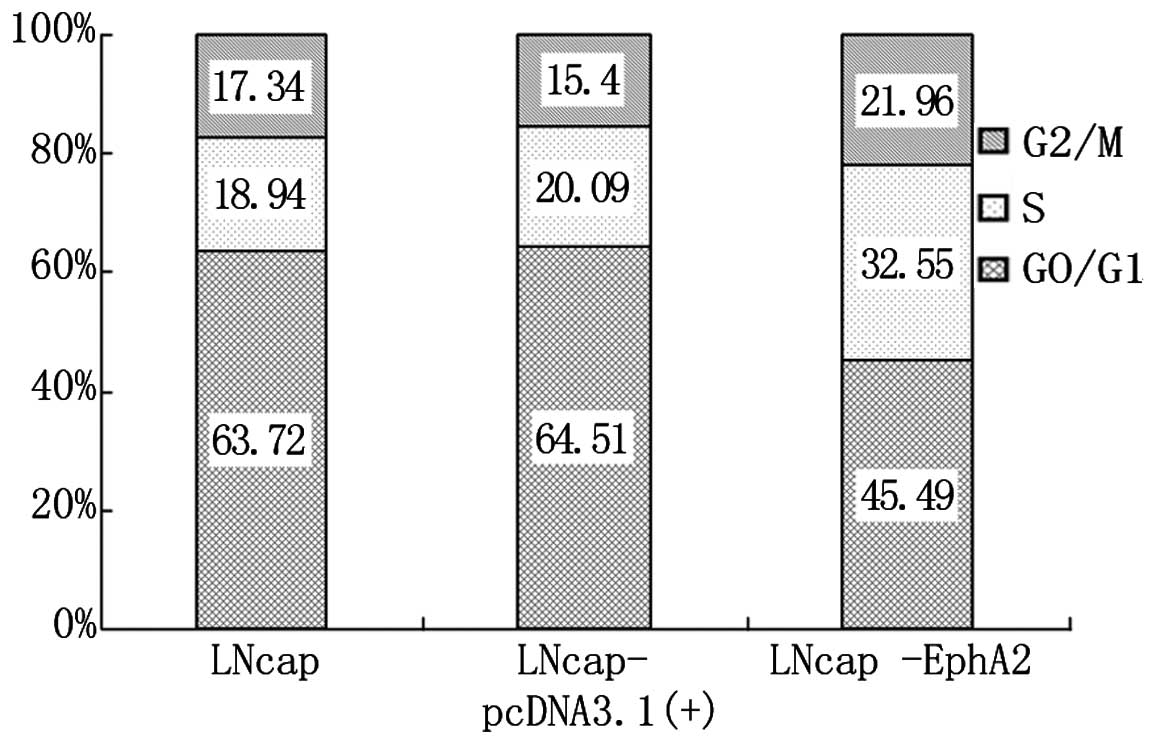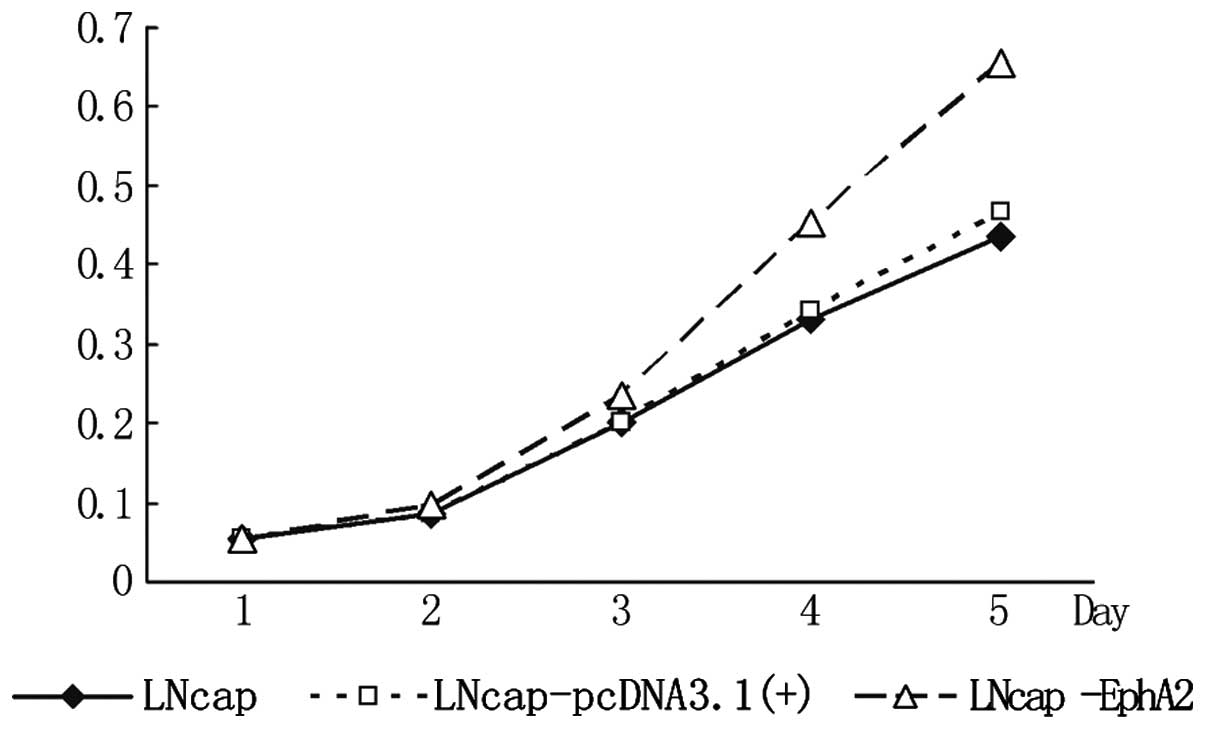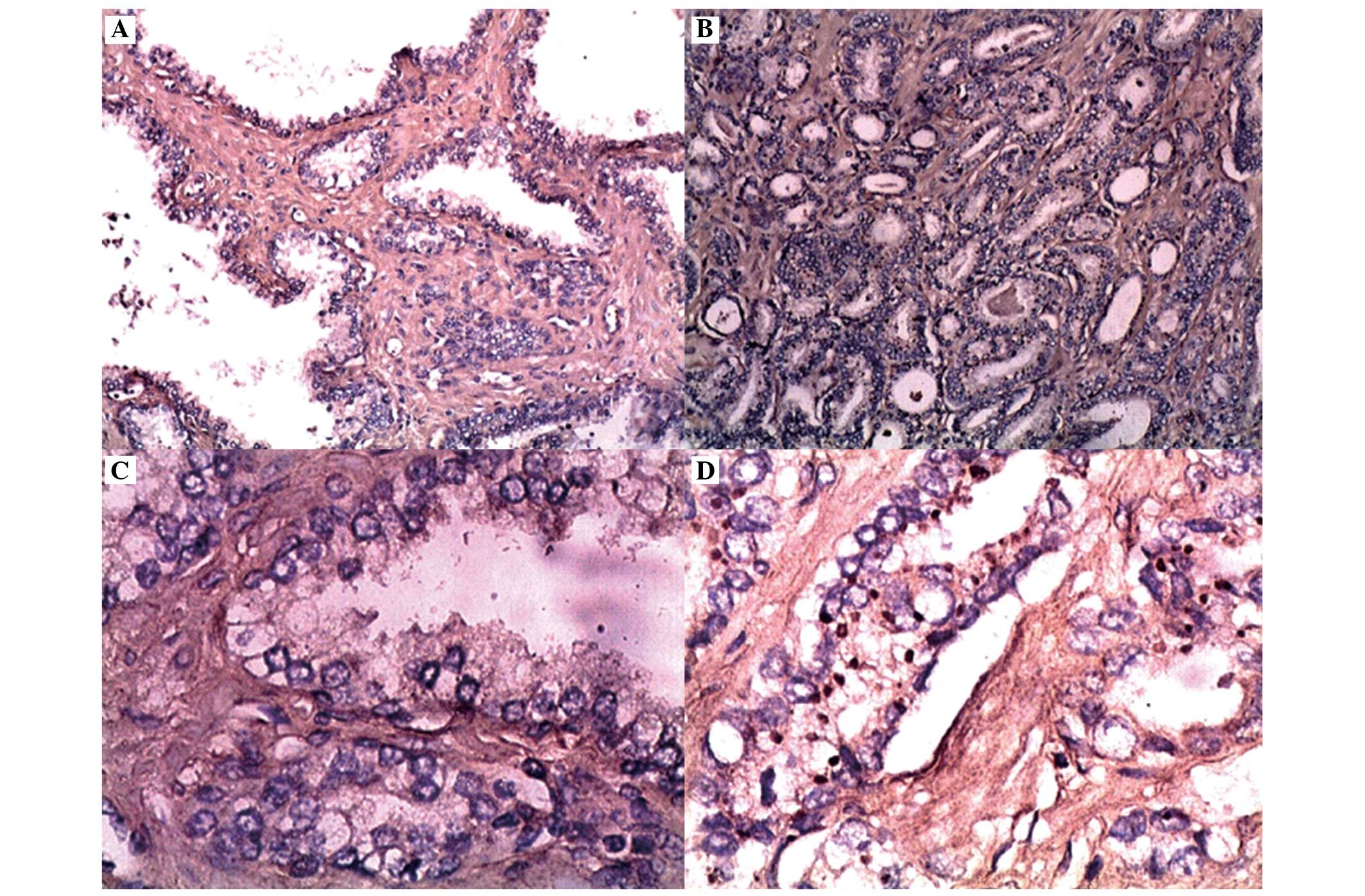|
1
|
Lindberg RA and Hunter T: cDNA cloning and
characterization of eck, an epithelial cell receptor
protein-tyrosine kinase in the eph/elk family of protein kinases.
Mol Cell Biol. 10:6316–6324. 1990.
|
|
2
|
Sulman EP, Tang XX, Allen C, et al: ECK, a
human EPH-related gene, maps to 1p36.1, a common region of
alteration in human cancers. Genomics. 40:371–374. 1997.
|
|
3
|
Cheng N, Brantley DM and Chen J: The
ephrins and Eph receptors in angiogenesis. Cytokine Growth Factor
Rev. 13:75–85. 2002.
|
|
4
|
Kamat AA, Coffey D, Merritt WM, et al:
EphA2 overexpression is associated with lack of hormone receptor
expression and poor outcome in endometrial cancer. Cancer.
115:2684–2692. 2009.
|
|
5
|
Liu F, Park PJ, Lai W, et al: A
genome-wide screen reveals functional gene clusters in the cancer
genome and identifies EphA2 as a mitogen in glioblastoma. Cancer
Res. 66:10815–10823. 2006.
|
|
6
|
Lu M, Miller KD, Gokmen-Polar Y, et al:
EphA2 overexpression decreases estrogen dependence and tamoxifen
sensitivity. Cancer Res. 63:3425–3429. 2003.
|
|
7
|
Walker-Daniels J, Coffman K, Azimi M, et
al: Overexpression of the EphA2 tyrosinase kinase in prostate
cancer. Prostate. 41:275–280. 1999.
|
|
8
|
Landen CN Jr, Chavez-Reyes A, Bucana C, et
al: Therapeutic EphA2 gene targeting in vivo using neutral
liposomal small interfering RNA delivery. Cancer Res. 65:6910–6918.
2005.
|
|
9
|
Abraham S, Knapp DW, Cheng L, et al:
Expression of EphA2 and Ephrin A-1 in carcinoma of the urinary
bladder. Clin Cancer Res. 12:353–360. 2006.
|
|
10
|
Herrem CJ, Tatsumi T, Olson KS, et al:
Expression of EphA2 is prognostic of disease-free interval and
overall survival in surgically treated patients with renal cell
carcinoma. Clin Cancer Res. 11:226–231. 2005.
|
|
11
|
Lin YG, Han LY, Kamat AA, et al: EphA2
overexpression is associated with angiogenesis in ovarian cancer.
Cancer. 109:332–340. 2007.
|
|
12
|
Brantley-Sieders DM, Zhuang G, Hicks D, et
al: The receptor tyrosine kinase EphA2 promotes mammary
adenocarcinoma tumorigenesis and metastatic progression in mice by
amplifying ErbB2 signaling. J Clin Invest. 118:64–78. 2008.
|
|
13
|
Taddei ML, Parri M, Angelucci A, et al:
EphA2 induces metastatic growth regulating amoeboid motility and
clonogenic potential in prostate carcinoma cells. Mol Cancer Res.
9:149–160. 2011.
|
|
14
|
Kinch MS, Clark GJ, Der CJ and Burridge K:
Tyrosine phosphorylation regulates the adhesions of ras-transformed
breast epithelia. J Cell Biol. 130:461–471. 1995.
|
|
15
|
Prout GR Jr: Proceedings: Diagnosis and
staging of prostatic carcinoma. Cancer. 32:1096–1103. 1973.
|
|
16
|
Zeng G, Hu Z, Kinch MS, et al: High-level
expression of EphA2 receptor tyrosine kinase in prostatic
intraepithelial neoplasia. Am J Pathol. 163:2271–2276. 2003.
|
|
17
|
Kamat AA, Fletcher M, Gruman LM, et al:
The clinical relevance of stromal matrix metalloproteinase
expression in ovarian cancer. Clin Cancer Res. 2:1707–1714.
2006.
|
|
18
|
Margaryan NV, Strizzi L, Abbott DE, et al:
EphA2 as a promoter of melanoma tumorigenity. Cancer Biol Ther.
8:279–288. 2009.
|
|
19
|
Parri M, Taddei ML, Bianchini F, et al:
EphA2 reexpression prompts invasion of melanoma cells shifting from
mesenehymal to amoeboid-like motility style. Cancer Res.
69:2072–2081. 2009.
|
|
20
|
Lu C, Shahzad MM, Wang H, et al: EphA2
overexpression promotes ovarian cancer growth. Cancer Biol Ther.
7:1098–2103. 2008.
|
|
21
|
Taddei ML, Parri M, Angelucci A, et al:
Kinase-dependent and-independent roles of EphA2 in the regulation
of prostate cancer invasion and metastasis. Am J Pathol.
174:1492–1503. 2009.
|
|
22
|
Petty A, Myshkin E, Qin H, et al: A small
molecule agonist of EphA2 receptor tyrosine kinase inhibits tumor
cell migration in vitro and prostate cancer metastasis in vivo.
PLoS One. 7:e421202012.
|
|
23
|
Van den Broeck A, Vankelecom H, Van
Eijsden R, et al: Molecular markers associated with outcome and
metastasis in human pancreatic cancer. J Exp Clin Cancer Res.
31:682012.
|
|
24
|
Coffman KT, Hu M, Carles-Kinch K, et al:
Differential EphA2 epitope display on normal versus malignant
cells. Cancer Res. 63:7907–7912. 2003.
|
|
25
|
Liu DP, Wang Y, Koeffler HP and Xie D:
Ephrin-A1 is a negative regulator in glioma through downregulation
of EphA2 and FAK. Int J Oncol. 30:865–871. 2007.
|
|
26
|
Mohammed KA, Wang X, Goldberg EP, et al:
Silencing receptor EphA2 induces apoptosis and attenuates tumor
growth in malignant mesothelioma. Am J Cancer Res. 1:419–431.
2011.
|



















